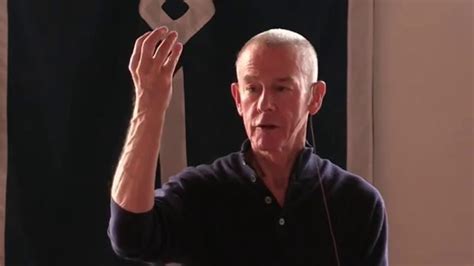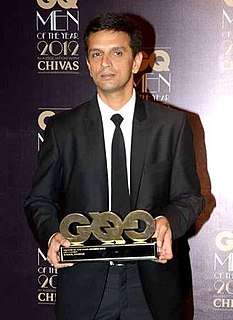A Quote by Jaggi Vasudev
Being attached to someone is not about the other person. It is about your own sense of inadequacy.
Related Quotes
What is emotional intimacy? It is that depp sense of being connected to one another. It is feeling loved, respected and appreciated, while at the same time seeking to reciprocate. To feel loved is to have the sense that the other person genuinely cares about your well-being. Respect has to do with feeling that your potential spouse has positive regard for your personhood, intellect, abilities and personality. Appreciation is that inner sense that your partner values your contribution to the relationship.
If you are not being bullied all I would say - cause I like to talk about the other side of it as well - is you know, be someone that nurtures, and if there's someone in your class that maybe doesn't have a lot of friends, be the person that sits with them in the cafeteria sometimes; be the bigger person.
Every once in a while someone says, 'You can't really learn anything, if you're really a writer then you wouldn't need to do it.' But I think what people need is the sense of not being alone. They go to MFA programs to be part of a community of people who care, and then you start caring about your friend who is trying to edit a magazine and your other friend who is stuck in the middle of her poem. There you have all kinds of things to worry about besides your own success.
You can be loved by your family, your mate, and your friends yet not love yourself. You can be admired by your associates yet regard yourself as worthless. You can project an image of assurance and poise that fools almost everyone yet secretly tremble with a sense of inadequacy. You can fulfill the expectations of others yet fail your own. You can win every honor yet feel that you have accomplished nothing. What shall it profit a person to gain the esteem of the whole world yet lose his or her own?
One of the things I think about when we talk about a violence,and relationship to spirituality is that it seems to me when you take something from someone that isn't yours or you hurt someone else, fundamentally, you actually do that to yourself. You actually unmake yourself, you work against your own being and your own matter.
Dharma is not about credentials. It's not about how many practices you've done, or how peaceful you can make your mind. It's not about being in a community where you feel safe or enjoying the cachet of being a 'Buddhist.' It's not even about accumulating teachings, empowerments, or 'spiritual accomplishments.' It's about how naked you're willing to be with your own life, and how much you're willing to let go of your masks and your armor and live as a completely exposed, undefended, and open human person.
Reading about utopianism, and eventually creating characters with their own utopian ambitions, was the way I learned to live with being a pregnant person, to stave off the sense of incipient disaster. You're bringing a person into this overcrowded world, knowing they're one day going to die and there's nothing you can do about it.
When we start talking about gurus, first of all we're starting to talk about something that can't be talked about, in the sense that you can never really know what a guru is as long as you are imprisoned by your own thoughts and circular ego. The true guru is someone who's transcended all that. And we don't know anything about that.
Most people do not realize that as they continue to find things to complain about, they disallow their own physical well-being. Many do not realize that before they were complaining about an aching body or a chronic disease, they were complaining about many other things first. It does not matter if the object of your complaint is about someone you are angry with, behavior in others that you believe is wrong, or something wrong with your own physical body. Complaining is complaining, and it disallows improvement.
Most people don't know how to listen because the major part of their attention is taken up by thinking. They pay more attention to that than to what the other person is saying, and none at all to what really matters: the Being of the other person underneath the words and the mind. Of course, you cannot feel someone else's Being except through your own. This is the beginning of the realization of oneness, which is love. At the deepest level of Being, you are one with all that is.
If a person was accused of being a racist when he was young - he said some racially insensitive thing or someone had him on tape calling someone the n-word or whatever - and then you fast forward and he feels, Oh, back then I didn't say this or that. He's not thinking about the person that he hurt when he said what he said, or however it came out, or the effects that it could have had. He's not thinking about it. He's thinking about his own self and how he feels.
The difference between me and other athletes is that I'm speaking on things that I go through that I know other people go through. I think a lot of times the mistake in music if you're broke, rap about being broke, if you're sensitive, rap about being sensitive, 'cause there are other sensitive people. If you're sensitive but you talk about being a tough person that doesn't care about anything, people will call your bluff.
I thought about cricket a lot. I needed to get out of this bubble of mine. I found it in books and conversations with other people about other things. I was a curious person, and this was my release. I like being challenged intellectually. I hated at the end of the day to talk cricket to someone else.



































